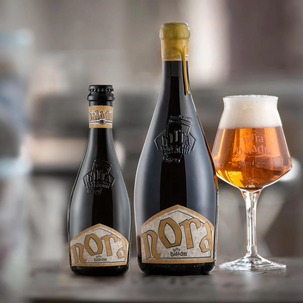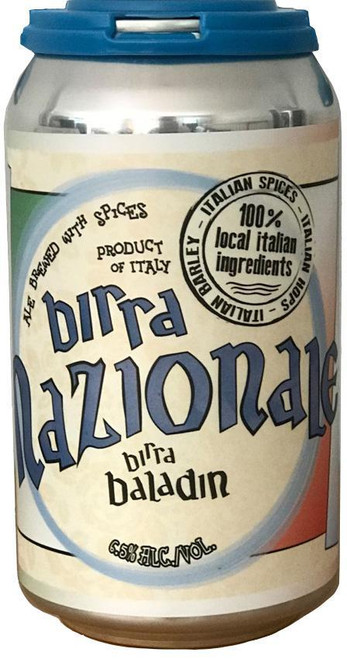Egyptian-inspired Ale | 6.8% abv
This very original beer has a golden deep color (or, more technically speaking, amber with copper hues) and a slight hazy appearance, while the head is fine and persistent. It release a kaleidoscope of scents that blend into one, pleasant bouquet of fruity, resinous and woody notes, with a subtle touch of incense: a surprise each time the glass is brought to the nose.
The taste of cereals stands out and anticipates notes of apricot, hazelnut and honey. An explosion of tastes brought together by the freshness of ginger and slight hints of citrus fruits, before finishing with notes of spices and malt.
After dedicating two beers to his first two children, Teo decides the time has come to pay homage to their mother too. This is the inspiration to create a beer that carries her name and takes inspiration from African culture, given Nora’s Berber-Algerian origins.
Given this background and the ingredients used in the recipe - particularly ginger, myrrh and khorasan wheat, a cereal that was discovered in Egypt in the ‘50s - it was only natural to nickname it “Egyptian Beer”, as it still known today.
This very original beer has a golden deep color (or, more technically speaking, amber with copper hues) and a slight hazy appearance, while the head is fine and persistent. It release a kaleidoscope of scents that blend into one, pleasant bouquet of fruity, resinous and woody notes, with a subtle touch of incense: a surprise each time the glass is brought to the nose.
The taste of cereals stands out and anticipates notes of apricot, hazelnut and honey. An explosion of tastes brought together by the freshness of ginger and slight hints of citrus fruits, before finishing with notes of spices and malt.
After dedicating two beers to his first two children, Teo decides the time has come to pay homage to their mother too. This is the inspiration to create a beer that carries her name and takes inspiration from African culture, given Nora’s Berber-Algerian origins.
Given this background and the ingredients used in the recipe - particularly ginger, myrrh and khorasan wheat, a cereal that was discovered in Egypt in the ‘50s - it was only natural to nickname it “Egyptian Beer”, as it still known today.








